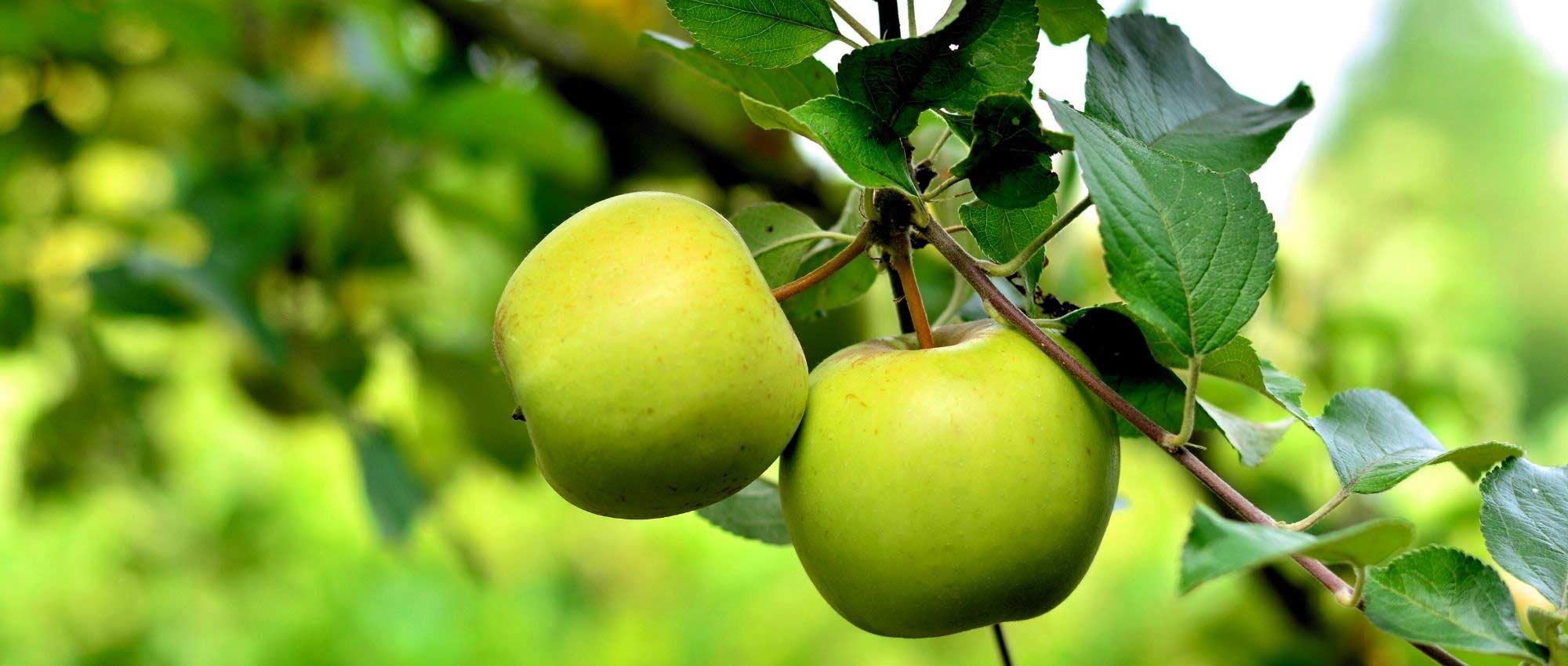
What are the best apple varieties?
Tasty varieties to snack on or cook with!
Contents
Golden, Gala, Fuji, Granny or Reinette… There are many apple varieties and just as many types of apple tree, so it is not easy to find your way around! They all have different characteristics: some are very sweet, others more tart, some are crisp while others have a softer flesh… This leads to different uses: one variety will be better for making tarts, another perfect for compote, another ideal to eat raw as is… Depending on their characteristics, they suit salads, juice, oven-baking, inclusion in sweet-and-savoury recipes, with meat and vegetables… For apple tarts, for example, choose firm-fleshed varieties that hold up better when cooked, while for compotes it is better to use soft-fleshed apples that become melting.
In this guide we present, not our top 7 apple varieties, but our top 12, so you can find the variety that best suits your needs!
| ? Variety | ? Ideal use | ? Skin colour | ? Taste | ? Aromatic profile / texture |
|---|---|---|---|---|
| Reine des Reinettes | Tart, Compote, Raw | Balanced: sweet and tart | Very fragrant, slightly hardy, fine texture | |
| Belle de Boskoop | Tart, Compote, Cooking | Tart, slightly sweet | Very fragrant, firm, becomes tender when cooked | |
| Delbard Jubilé | Tart, Raw | ? Bright red | Sweet and slightly tart | Very fragrant, juicy, crisp |
| Rambour d’Hiver | Tart, Compote, Cooking | Sweet with a touch of acidity | Firm, good holding when cooked, delicate taste | |
| Reinette grise du Canada | Tart, Compote, Slow cooking | Sweet, very aromatic | Firm flesh, very fragrant, hardy | |
| Elstar | Tart, Compote, Raw | Sweet with a hint of tartness | Juicy, mild, light honey note | |
| Transparente de Croncels | Compote, Quick cooking | Very tart | Mealy flesh, melting, very early ripening | |
| Golden Delicious | Tart, Compote, Raw, Juice | Sweet, very mild | Tender flesh, low acidity, mild flavour | |
| Fuji | Raw, Juice | Very sweet, low acidity | Very crisp, juicy, floral flavour | |
| Ariane | Raw, Tart, Compote | ? Bright red | Sweet with balanced acidity | Disease-resistant, crisp texture, fragrant |
| Granny Smith | Raw, Salad, Pastry | ? Bright green | Very tart, not very sweet | Crisp, juicy, refreshing |
→Discover our range of apple trees
Reine des reinettes: heirloom apple, tasty and easy to grow
Reine des Reinettes is an old variety, first recorded around 1770. This early apple is harvested in early September. Very hardy and cold-resistant, it adapts to most regions, including cooler areas. Only slightly susceptible to scab, it is productive and easy to grow, suitable even for novice gardeners.
The apple, yellow striate with red, is medium-sized. Its flesh is crisp, juicy and firm, with a good balance of sugar and acidity and a subtle flavour close to walnut.
In cooking, it excels at baking: it keeps its shape well, perfect for Tarte Tatin or baked apples. It is also delicious eaten raw to fully enjoy its freshness.
Reine des Reinettes apple tree, partly self-fertile, is also an excellent pollinator. To ensure good fruit set, it is recommended to plant it alongside varieties such as Idared, Golden Delicious, Melrose or Cox Orange. Plant in well-drained soil, in sun or partial shade.
Read also
Apple tree: planting, pruning and careBelle de Boskoop: late apple, ideal for compotes and tarts
La Belle de Boskoop is an old, late-season variety, to harvest between late October and November. It produces large round fruits, with a rough skin, yellow-green to red, sometimes irregular. This apple tree is vigorous, hardy and resistant, notably to scab and canker. It forms a tree with a spreading, well-aerated habit, which limits diseases.
Apples are juicy, with a grainy, tender flesh, combining acidity and sweetness. Once cooked, they become melting, with a rich, fragrant flavour.
It is an ideal apple for compotes when fully ripe, but also very suitable for tarte Tatin.
This apple tree prefers fresh to moist soils and dislikes dry ground. It is not self-fertile: for good fruiting, pair with Reine des Reinettes, Golden or Starking Delicious.
Discover other Apple trees
View all →Available in 0 sizes
Available in 0 sizes
Available in 1 sizes
Available in 1 sizes
Available in 1 sizes
Available in 1 sizes
Available in 0 sizes
Available in 4 sizes
Available in 2 sizes
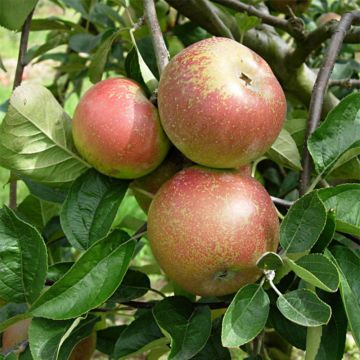
Available in 2 sizes
Delbard Jubilé: a very fragrant apple for gourmets!
Delbard Jubilee is a recent variety, bred in 1964, also known as ‘Delgollune’. Harvest takes place in late October and fruits keep until March under good storage conditions. This vigorous apple tree produces attractive two-toned red and yellow apples, highly prized for their flavour.
The flesh is tender, sweet and fragrant, with subtle notes of honey and hazelnut. It is an excellent eating apple, ideal eaten raw, but it also works very well in both savoury and sweet recipes, thanks to its ability to hold its shape during cooking.
The apple tree is productive and fairly disease-resistant. It is well suited to espalier training. Varieties Reine des Reinettes, Royal Gala, Delbarestivale and Régali are recommended as pollinisers
Rambour d'Hiver : a heritage apple, perfect for juicing!
Rambour d’Hiver is an old, hardy variety, particularly suited to cold regions. It is harvested in October, and the fruits keep until January in a cool place.
It produces large, irregular apples with yellow skin striate with red, sometimes almost entirely red.
Its flesh is sweet, slightly tangy, but not very aromatic, which makes it more flavoursome cooked than raw. It is ideal for compotes, pastries and even for apple juice.
The apple tree is disease-resistant, but not self-fertile. It will be well pollinated by a Reine des Reinettes planted nearby.
Reinette grise du Canada : an old variety, perfect for baked apples!
Reinette grise du Canada is an old English variety, also known as Golden Russet.
It produces flattened, irregular fruit with rough skin, bronze-yellow in colour or cinnamon. This vigorous, well-ventilated apple tree is not very susceptible to apple scab and adapts to most regions.
Flesh is fragrant, firm and well balanced between sweetness and acidity. It holds up very well to cooking, making it an excellent apple for baking. It is also suitable for compote or can be eaten raw.
Self-fertile, this variety sets fruit even better when planted with apple trees such as Idared, Reine des Reinettes or Golden Delicious.
Elstar: a sweet and tangy apple, perfect for biting into!
Elstar apple tree is a recent and very productive variety, the result of a cross-breeding between Golden Delicious and Ingrid Marie. Early-ripening, it is harvested from early September, with apples that keep until March. It adapts well to northern France and mid-mountain zones.
Fruits are fairly large, yellow with red striations, with crisp, juicy and very fragrant flesh. Their sweet and tangy flavour makes them a refreshing eating apple, perfect raw or in salads.
It also holds up very well to cooking, making it suitable for tarts, compotes, pan-fried apples or baked apples.
This apple tree is cold-hardy, but susceptible to diseases and alternate bearing. It requires pollinisers such as Golden Delicious, Gala, Granny Smith, Reine des Reinettes or Melrose.
Transparente de Croncels: a heritage apple for compotes!
Transparente de Croncels is a very early variety, harvested from late August. This apple tree, both vigorous and cold- and disease-resistant, is easy to grow.
It produces large matte yellow apples, sometimes streaked with red and grey speckles.
Flesh is tender, juicy and grainy, with a sweet, delicate and slightly tangy flavour. If picked too late, it can become mealy. Ideal for compote, as it becomes melting when cooked, but also delicious eaten raw, sliced.
It is not self-fertile: Reine des Reinettes and Cox Orange are recommended pollinators.
Golden Delicious: a versatile apple suitable for everyone!
Golden Delicious is the most widely grown apple variety in France, valued for its versatility and ease of cultivation. It is harvested in September and keeps well through winter until spring.
It produces large golden-yellow fruits, sometimes tinged with green or orange.
Flesh is sweet, fragrant, slightly tangy. Raw, refreshing; cooked, remains firm, making it perfect for tarts, crumbles or baked apples.
Apple tree is vigorous, but needs a period of winter chill to fruit well. It is therefore suited to cold regions. It is not self-fertile, and its pollinators are Granny Smith, Reine des Reinettes, Starking Delicious, Idared, Melrose or Cox Orange.
Fuji: very sweet, juicy apples, perfect for snacking!
Fuji is a very popular Asian variety, developed in Japan in 1939 at Fujisaki. Late-ripening, it is harvested from mid-October and its fruits can be kept for up to 8 months if stored in cool conditions. This apple tree becomes productive quickly.
Apples, nicely round and red on a yellow background, have a shiny epidermis. Their flesh is juicy, soft and sweet, with a slight honey aroma but little acidity.
It is mainly eaten raw, although it is also suitable for baking, especially for tarts.
To preserve flavour quality, it is recommended to thin the fruits: this limits their loss of sugar and reduces the risk of alternate bearing. Fuji is not self-fertile; to ensure fruiting, plant near varieties such as Golden Delicious, Granny Smith or Gala.
Ariane : crisp, tangy apple, easy to grow
Apple tree Ariane is a recent variety, created by INRA in 1979, the year of the rocket’s first flight. It is harvested between late September and October, with excellent storage life of up to 7 months.
It produces small red apples, sometimes tinged with yellow. Flesh is crisp, sweet and tangy, with a slightly effervescent sensation on the palate. It remains firm when cooked, making it suitable both raw and for baking.
It is a vigorous apple tree, hardy and undemanding, very disease-resistant, particularly to apple scab. Very productive, it requires few treatments and can be easily grown in the garden. Varieties Golden Delicious, Reine des Reinettes and Royal Gala are recommended for its pollination.
Granny Smith: tangy, crisp apple, perfect for cooking
Granny Smith is a late-season variety and very widespread, harvested in early November. It produces well-rounded, bright green, glossy apples that can turn a rosy yellow if harvested late, with a more fragrant flavour.
Its flesh is firm, very juicy and tangy, with little sugar, making it refreshing. It is ideal for cooking, notably crumbles, tarte Tatin or salads, as it holds up well to cooking and browns slowly on exposure to air.
In the garden, it is not self-fertile and needs varieties such as Golden Delicious, Jonathan, Idared or Melrose to set fruit. This apple tree needs warmth in autumn, so it should be avoided in cold regions. It is also susceptible to certain diseases, notably powdery mildew, scab and woolly aphid.
- Subscribe!
- Contents
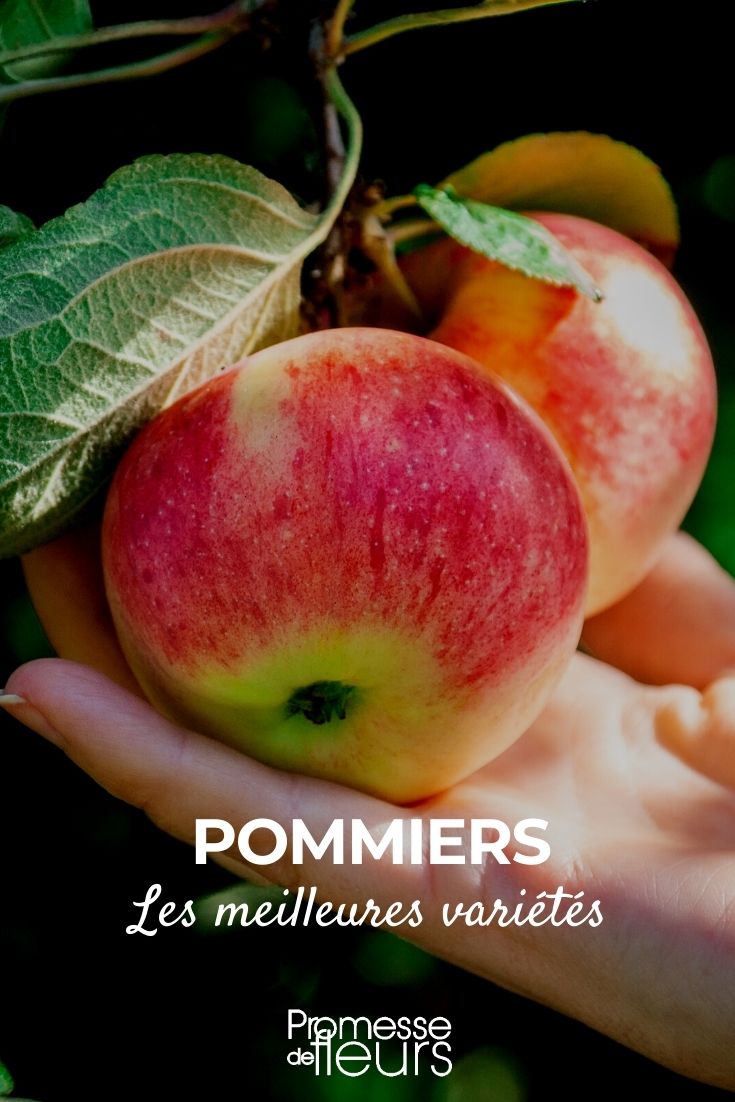































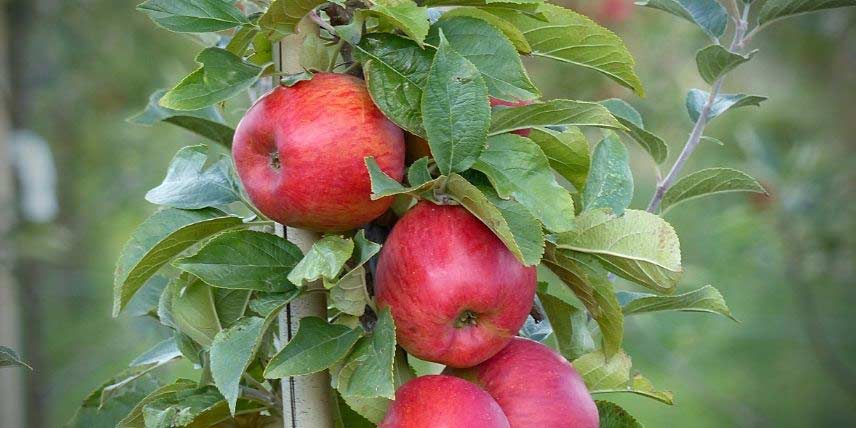
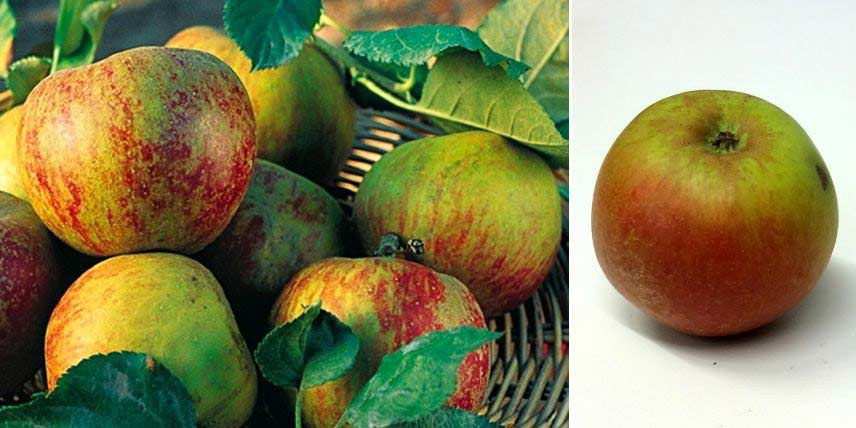
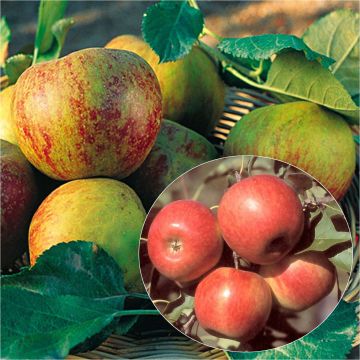
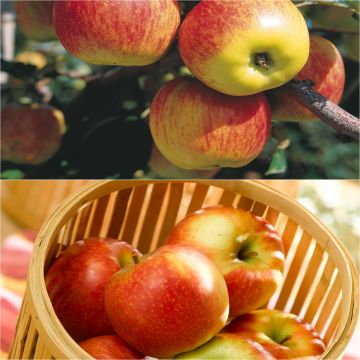
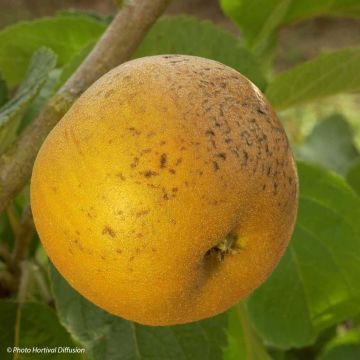
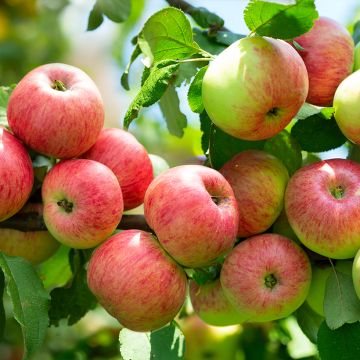
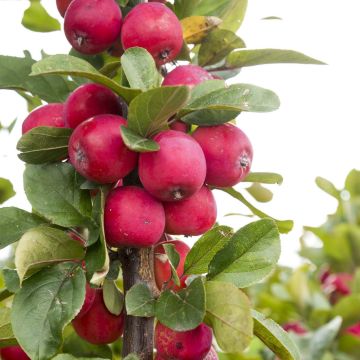
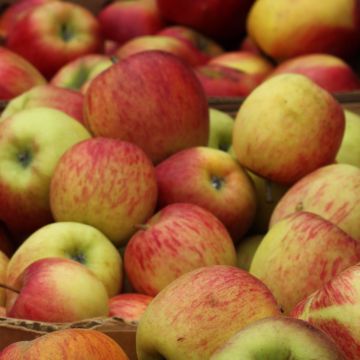
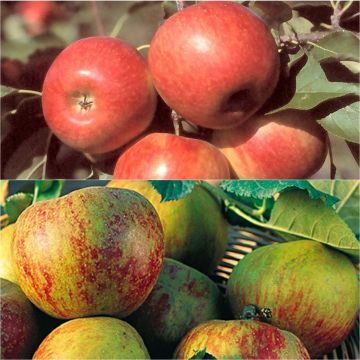
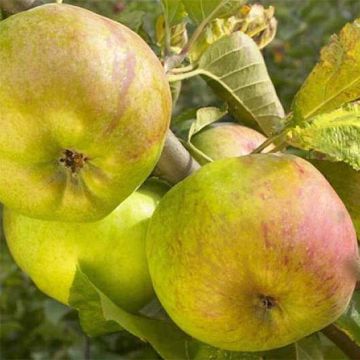
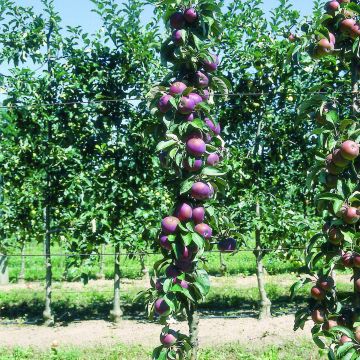
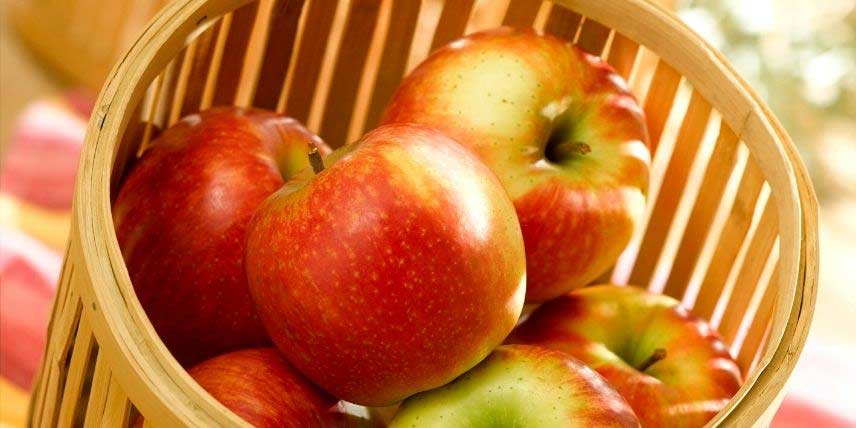
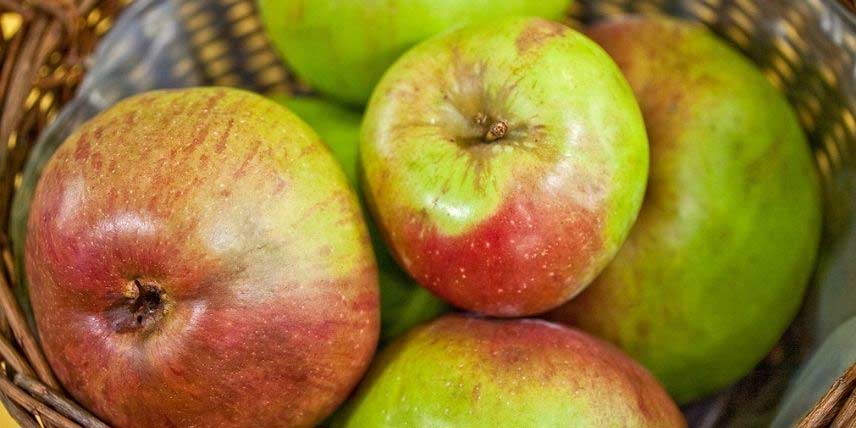
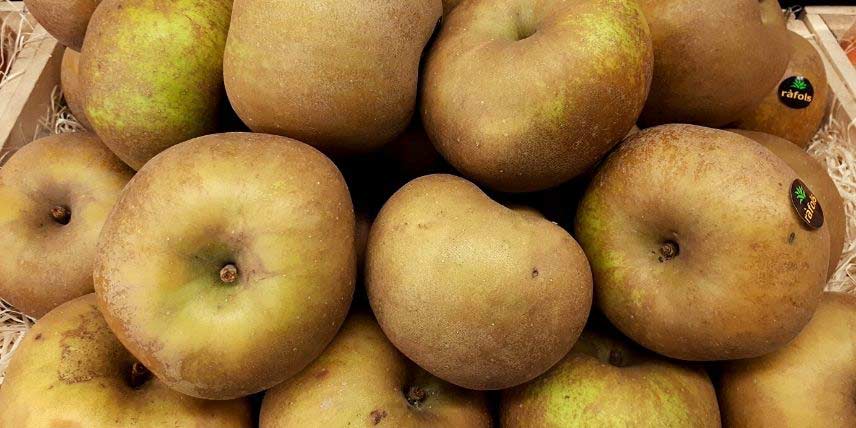
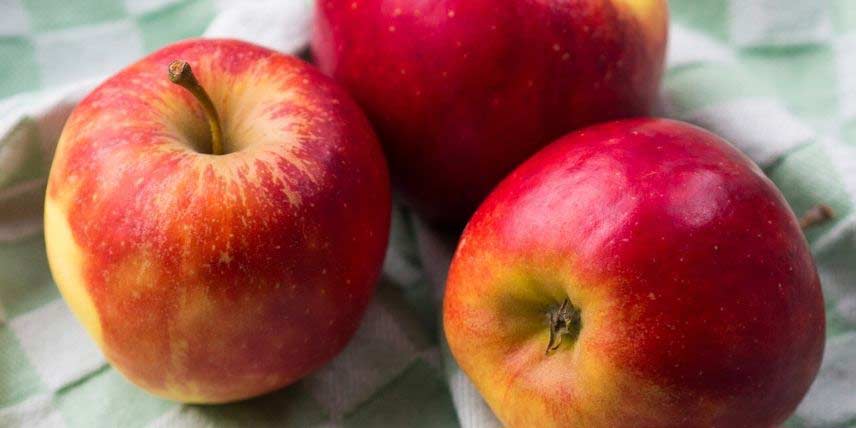
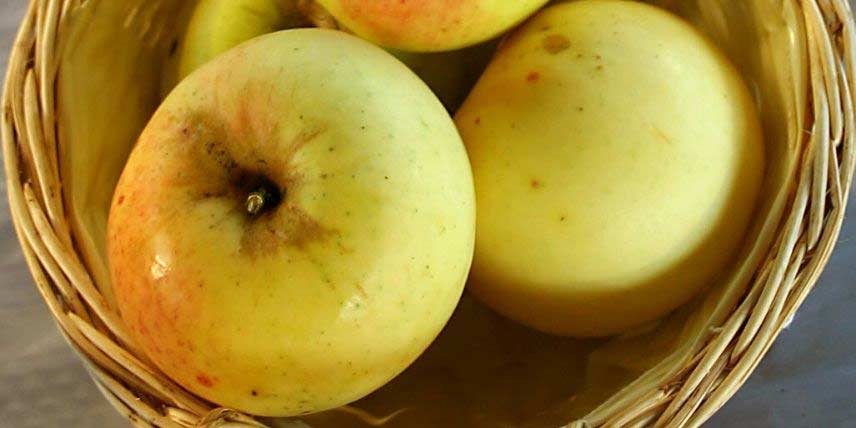
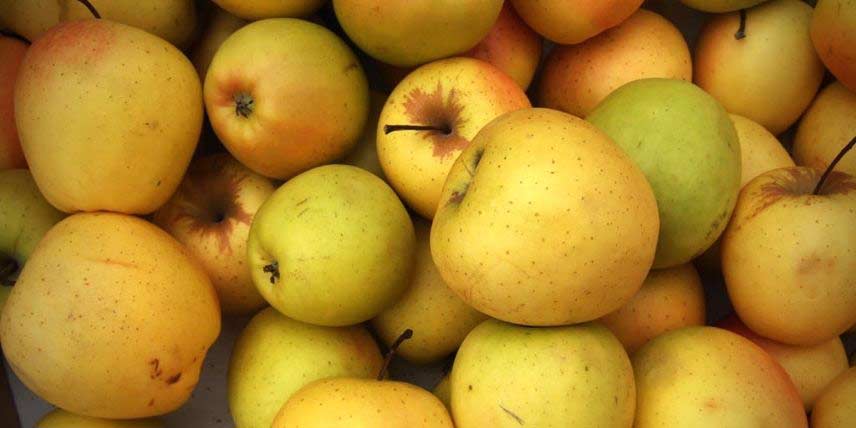
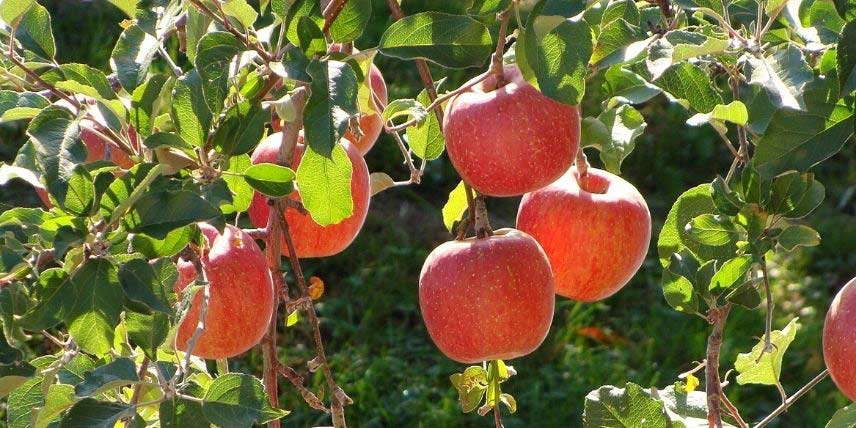
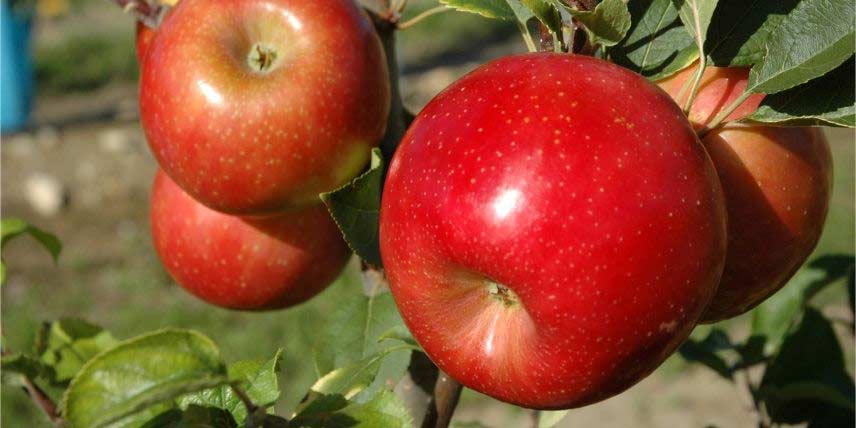
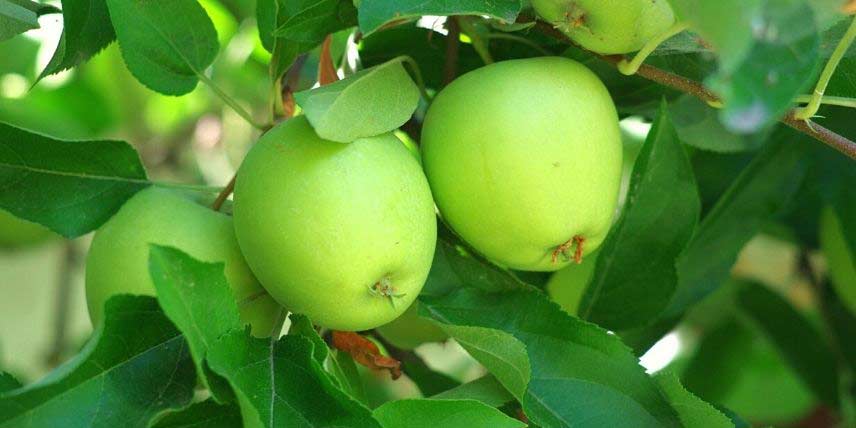
Comments